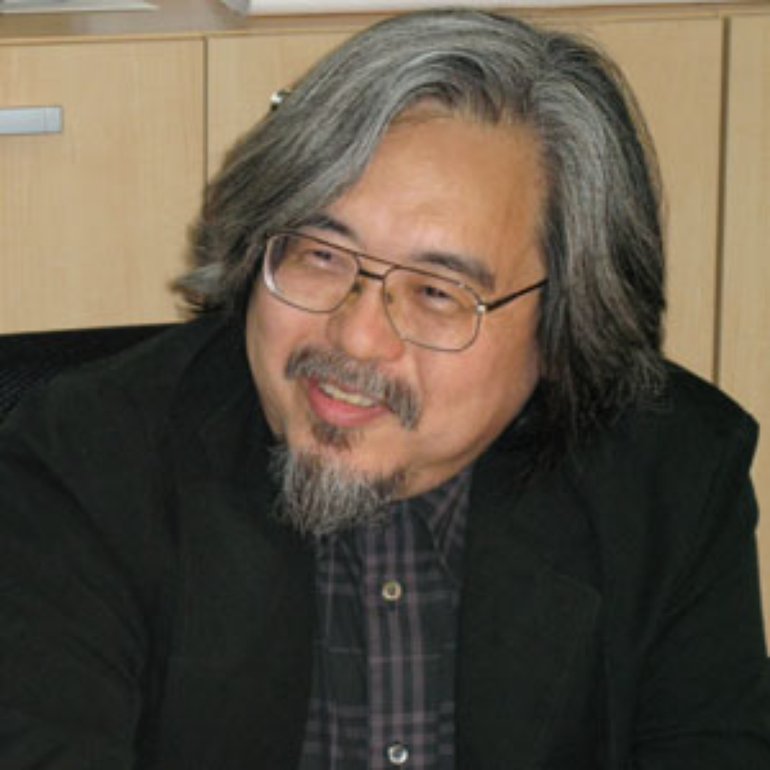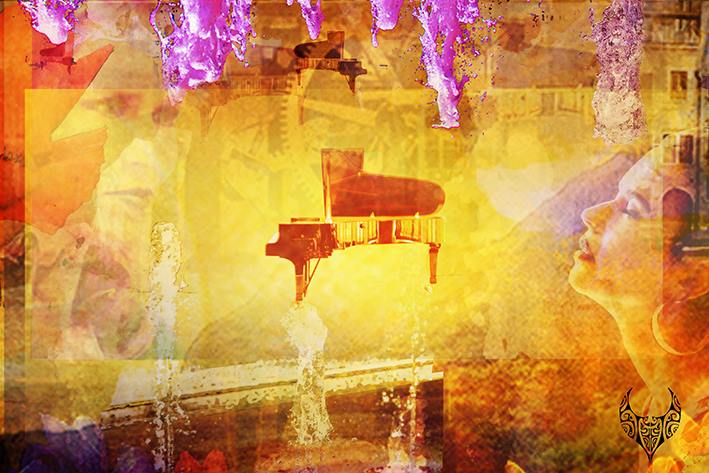About
Music is a “language” different from words, a “numerical formula” different from mathematics. And my works are what I gave birth to, meaning they are my “children.”
Takashi Yoshimatsu was born in Tokyo, Japan, and like Toru Takemitsu, the composer generally considered to be Japan's greatest in the western classical style, did not receive formal musical training while growing up. He dropped out of Keio University in March 1974, and joined an amateur band named NOA as a keyboard player, emulating the music of Pink Floyd. He became interested in the jazz and progressive rock scenes, particularly in the possibilities being explored through electronic music. He was a fan of the Walker Brothers and the Ventures when he was 13, but symphonies of Beethoven and Tchaikovsky fascinated him when he was 14. Since then he composed a number of pieces before making his name with the serialist 'Threnody for Toki' in 1981.[1] Soon afterwards, he became disenchanted with atonal music, and began to compose in a free neo-romantic style with strong influences from jazz, rock and Japanese classical music, underscoring his reputation with his 1985 guitar concerto. As of 2007, Yoshimatsu has presented six symphonies, 12 concertos: one each for bassoon, cello, guitar, trombone, alto saxophone, soprano saxophone, marimba, chamber orchestra, traditional Japanese instruments, and two for piano (one for the left hand only and one for both hands), a number of sonatas, and various shorter pieces for ensembles of various sizes. His 'Atom Hearts Club Suites' for string orchestra explicitly pay homage to the Beatles, Pink Floyd and Emerson, Lake & Palmer. The majority of his work is triadic and contains simple, repeated progressions, or in some cases pandiatonicism. Often extended tertian harmonies are followed by whole tone harmonies (such as in the first movement of Symphony No. 5; or the first movement of his "Cyber Bird" Concerto for alto saxophone, which, in addition, makes use of free atonal jazz; or the final movement of his "Orion Machine" Concerto; or in his Saxophone Concerto "Albireo Mode"). His works for Japanese traditional instruments (such as Subaru, and Within Dreams, Without Dreams) make use of traditional Japanese scales and tunings. He has published some essays and primers about classical music.[1] He likes to draw pictures and has illustrated his own books. As a composer of concert music, Yoshimatsu's preference is for "new lyricism," and an avoidance of the unmusical characteristics (and, especially, the atonalism) of much modern concert music. His work has utilized Japanese instruments such as the koto in a chamber music context, but has also embraced such traditional European forms as the symphony and the piano concerto. Yoshimatsu draws from a vast range of musical influences, including rock and jazz; his cultural influences include his native Japan.

